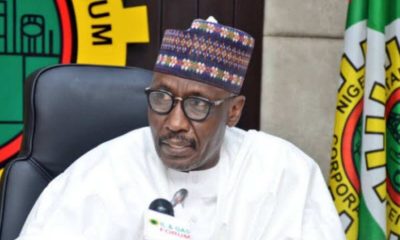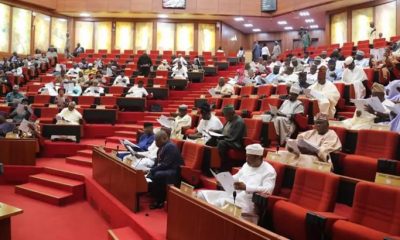News
Delta government to partner Industry to grow commercial activities

Delta State government said, it would partner with Delta Association of Chamber of Commerce, Industry, Mines and Agriculture, DACCIMA, to drives commercial activities.
Secretary to Delta State government, Chief Patrick Ukah stated this at the investiture of a Senior Advocate of Nigeria (SAN), Dr Anthony Idigbe, who was named president of Delta Association of Chamber of Commerce, Industry, Mines and Agriculture (DACCIMA) in Asaba.

Ukah called on DACCIMA to support the government in creating a conducive environment for businesses to thrive, stressing that government of Dr. Ifeanyi Okowa was doing it’s best to end multiple taxation.
Meanwhile, the State Commissioner for Trade and Investment, Mr. Churchill Amagada, said, some concerns raised by organised private sector with regards to multiple taxation by the State Board of Internal Revenue has been addressed.
Reacting, Idigbe said he would build on legacies of his predecessors in boosting the economy.
“My vision is encapsulated in these words: ‘To build the most formidable platform for the fourth industrial revolution in Delta State.’
“Our problem in the state is we have oil and it is a curse because it is a resource that will eventually expire.”
The senior partner at Punuka Attorneys and Solicitors, urged the government to deploy resources in non-oil business ventures in the state.
He said: “We want an ultramodern trade fair complex in Osubi and other parts of the state; we are demanding it from the government.
“DACCIMA will manage it and ensure that it is run according to international best practice.”
Decorating Idigbe as the new leader of the association, the immediate-past president of DACCIMA, Chief Willams Makinde, urged all members and executives to cooperate and support the new president.
In a lecture titled: “Impact of multiple taxations in the industrial development of Delta State,” Prof Abiola Sanni (SAN) of the University of Lagos (UNILAG) called for structural reforms of the tax system to enable local governments to generate sufficient revenue to finance their expenditure.

























